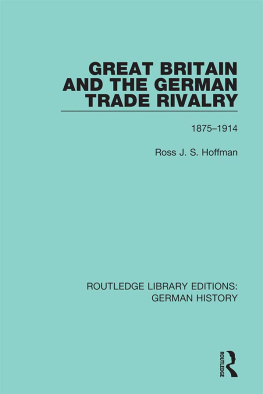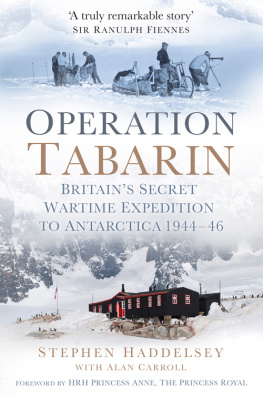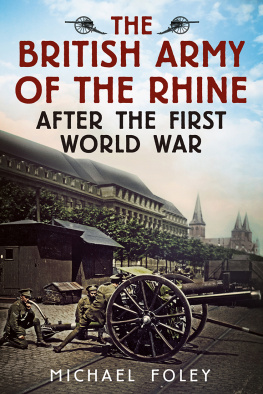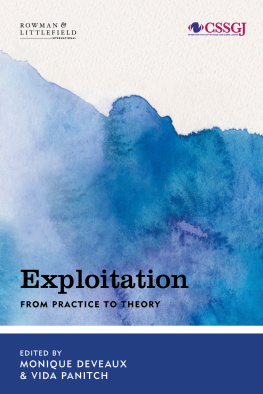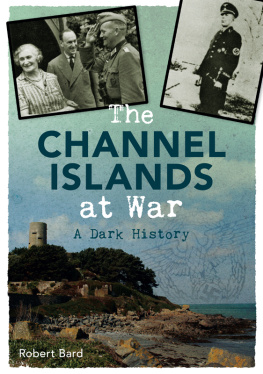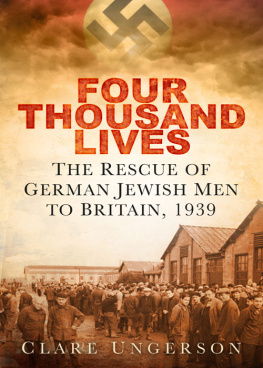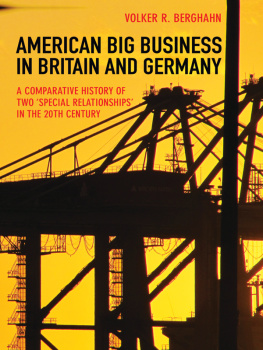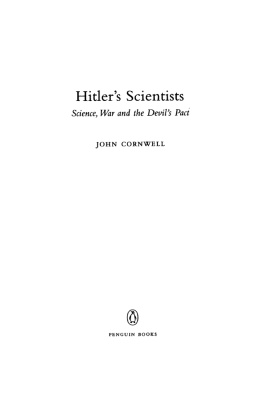
British Exploitation of German Science and Technology, 19431949
At the end of the Second World War, Germany lay at the mercy of its occupiers, all of whom launched programmes of scientific and technological exploitation. Each occupying nation sought to bolster their own armouries and industries with the spoils of war, and Britain was no exception. Shrouded in secrecy yet directed at the top levels of government and driven by ingenuity from across the civil service and armed forces, Britain made exploitation a key priority. By examining factories and laboratories, confiscating prototypes and blueprints, and interrogating and even recruiting German experts, Britain sought to utilise the innovations of the last war to prepare for the next.
This ground-breaking book tells the full story of British exploitation for the first time, sheds new light on the legacies of the Second World War, and contributes to histories of intelligence, science, warfare and power in the midst of the twentieth century.
Charlie Hall is Associate Lecturer in History at the University of Kent.
Routledge Studies in Second World War History
The Second World War remains today the most seismic political event of the past hundred years, an unimaginable upheaval that impacted upon every country on Earth and is fully ingrained in the consciousness of the world's citizens. Traditional narratives of the conflict are entrenched to such a degree that new research takes on an ever important role in helping us make sense of World War II. Aiming to bring to light the results of new archival research and exploring notions of memory, propaganda, genocide, empire and culture, Routledge Studies in Second World War History sheds new light on the events and legacy of global war.
Recent titles in this series
German-occupied Europe in the Second World War
Edited by Raffael Scheck, Fabien Thofilakis, and Julia Torrie
British Exploitation of German Science and Technology, 19431949
Charlie Hall
Unknown Conflicts of the Second World War
Forgotten Fronts
Chris Murray
A New Nationalist Europe Under Hitler
Concepts of Europe and Transnational Networks in the National Socialist Sphere of Influence, 19331945
Edited by Johannes Dafinger and Dieter Pohl
The Swedish Jews and the Holocaust
Pontus Rudberg
https://www.routledge.com/Routledge-Studies-in-Second-World-War-History/book-series/WWII
British Exploitation of German Science and Technology, 19431949
Charlie Hall
First published 2019
by Routledge
2 Park Square, Milton Park, Abingdon, Oxon OX14 4RN
and by Routledge
52 Vanderbilt Avenue, New York, NY 10017
Routledge is an imprint of the Taylor & Francis Group, an informa business
2019 Charlie Hall
The right of Charlie Hall to be identified as author of this work has been asserted by him in accordance with sections 77 and 78 of the Copyright, Designs and Patents Act 1988.
All rights reserved. No part of this book may be reprinted or reproduced or utilised in any form or by any electronic, mechanical, or other means, now known or hereafter invented, including photocopying and recording, or in any information storage or retrieval system, without permission in writing from the publishers.
Trademark notice : Product or corporate names may be trademarks or registered trademarks, and are used only for identification and explanation without intent to infringe.
British Library Cataloguing-in-Publication Data
A catalogue record for this book is available from the British Library
Library of Congress Cataloging-in-Publication Data
Names: Hall, Charlie, 1991- author.
Title: British exploitation of German science and technology, 19431949.
Description: Abingdon, Oxon; New York, NY: Routledge, 2019. |
Series: Routledge studies in Second World War history | Revision of authors thesis (doctoral)University of Kent, 2017. | Includes bibliographical references and index.
Identifiers: LCCN 2018046758 | ISBN 9780815358381 (hardback) | ISBN 9781351122559 (ebook)
Subjects: LCSH: World War, 19391945Science. | Technology transferGreat BritainHistory20th century. | Technology transferGermanyHistory20th century. | Military researchGermanyHistory20th century.
Classification: LCC D810.S2 H35 2019 | DDC 940.54/8dc23
LC record available at https://lccn.loc.gov/2018046758
ISBN: 978-0-8153-5838-1 (hbk)
ISBN: 978-1-351-12255-9 (ebk)
Typeset in Times New Roman
by Deanta Global Publishing Services, Chennai, India
For my parents,
Vicki and Ian
The history, it is what it is.
H. Kane, Volgograd, 2018
This book has been some six years in the making, though the finished product is a very different animal to the project on which I first started working all that time ago. In the course of research and writing, I have been fortunate enough to be surrounded by a highly supportive network of friends, family and colleagues, to all of whom I owe a debt of gratitude. This book emerged from research I began as a doctoral student and so I would first like to thank my PhD supervisors, Professor Ulf Schmidt and Dr Stefan Goebel. Both offered endless advice, guidance and encouragement throughout the process and their influence on this work and on my ethos as a scholar more generally is enormous. The formers faith in me from a very early stage is the main reason that I chose to continue my studies beyond undergraduate level. I would also like to thank my two PhD examiners, Professor Brian Balmer and Dr Juliette Pattinson, partly for participating in what was a truly enjoyable viva, but also for helping me to develop my career thereafter. Their comments and suggestions helped me transform this work from thesis to book.
More generally, the School of History at the University of Kent has been my intellectual home for the past nine years and there is nowhere that I would rather have spent that time. The staff and students here have made it the best possible environment in which to research and write the book, as well as to learn and teach more broadly, and I owe them all my thanks. The funding provided by the School allowed me to complete my PhD and helped bring this project to maturity. In addition, my current team of close colleagues Professor David Stirrup, Professor Jacqueline Fear-Segal, Professor Coll Thrush, Dr Kate Rennard and Dr Jack Davy have allowed me to work on this book alongside my other duties, with only gentle jibes about where my priorities lie. My thanks also go to staff at The National Archives at Kew, the Imperial War Museum, the Churchill Archives Centre in Cambridge, and the British Library, whose assistance with all manner of queries has proven invaluable time and time again.
On a personal note, I am enormously grateful to my fellow columb offeret Dr William Butler and Dr Mario Draper who are both friends and colleagues, and who have acted as a sounding-board throughout the writing-up process, as well as knowing exactly when to change the subject. Words cannot express quite how much I owe to my parents, Vicki and Ian, to whom this book is dedicated. They nurtured my love of reading, writing, and history from a very young age and I hope that the publication of this book can act as testament to my gratitude for all that they have done, and continue to do, for me. It is very much their achievement as well as my own. My final and most significant thanks go to my wife, Annamarie, who has put up with the British exploitation of German science and technology for as long as I have, and with greater patience. There is no doubt in my mind that her support, encouragement and companionship ultimately made this book possible, and for that I will remain forever grateful.


